Schema therapy is one of the most rapidly growing and promising cognitive-behavioral therapy directions that has been developed to help patients overcome their maladaptive psychological functioning that originates in aversive childhood experiences. The main goal of the schema therapy is to change these childhood-related emotions and beliefs related to the aversive experiences in order to stop maladaptive feelings, thoughts and behaviors. A research team, under the leadership of Professor Jarosław Michałowski will compare neuronal and psychological mechanisms and effectiveness of “imaginal exposure” and “imaginary rescription” psychotherapy techniques, in people experiencing strong fear of failure.
Schema therapists assume that emotions and beliefs related to the aversive childhood experiences can be changed by providing corrective experiences. One way to change these experiences is to use an imaginal treatment technique called “imagery rescription”. This technique has been proven to effectively reduce the severity of personality disorders and other psychological problems, but the verification of possible mechanism of change provided by this method is not possible with the current state of knowledge.
Imagery rescription was created by modification of a classical cognitive-behavioral therapy technique called “imaginal exposure”. Both techniques start with imagery of a negative autobiographical experience that underlies patients’ mental problems. The difference between these two methods is that negative autobiographical imagery is the core and only part of imaginal exposure whereas in the imagery rescription it is followed by imagery of positive ending in which patients imagine their therapist caring for them.
Imagery rescription was created by modification of a classical cognitive-behavioral therapy technique called “imaginal exposure”. Both techniques start with imagery of a negative autobiographical experience that underlies patients’ mental problems. The difference between these two methods is that negative autobiographical imagery is the core and only part of imaginal exposure whereas in the imagery rescription it is followed by imagery of positive ending in which patients imagine their therapist caring for them.
Studies conducted so far have indicated that disrupting expectations concerning the sequence of events can increase the effectiveness and stability of therapeutic change. The change may even be greater when there is a short time break between the memory recall and positive ending, which makes the old memory trace more vulnerable.
The goal of this project is to compare “imaginal exposure” and two versions of “imagery rescription” (with and without a time gap) in order to shed some light on psychological and neural mechanism of the imagery treatment. This project should also answer a question whether the effectiveness of this treatment can be improved, and if yes, to what extent.
Persons experiencing a strong fear of failure will be randomized into three groups, which undergo one of three psychotherapeutic treatments, including: “imaginal exposure”, “imaginary rescription”, and “imaginary rescription with a 10-minute break”.
Researchers will measure psychophysiological symptoms (sweating) and neuroimaging (MRI) to observe brain activity, which will allow them to identify neuronal patterns responsible for the effectiveness of the afore-mentioned imagining techniques.
Maintaining objectivity and methodological correctness of a study, which is focused on the effectiveness/mechanisms of psychotherapy, is a huge challenge because many different factors, which need to be monitored during the study (e.g. the patient-therapist relationship) impact the process of health improvement. However, these types of studies are greatly needed as only objective data on the effectiveness and stability of psychotherapy effects will ensure improvement of the complex process of getting better.
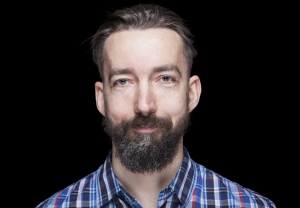
Michałowski, Jarosław
Principal Investigator
Specialization
psychologist, researches neural correlates of emotional experiences
First and last name
Jarosław Michałowski
Academic degree or title
Ph.D. / Associate Professor
Email
This email address is being protected from spambots. You need JavaScript enabled to view it.
Position
profesor uczelni
Role in the Faculty
{"funkcja-na-wydziale0":{"Funkcja":"","\u0141\u0105cznik":"","Nazwa w mianowniku":"Faculty of Psychology and Law in Pozna\u0144"}}
Role in the Department
{"funkcja-w-katedrze0":{"Funkcja":"","\u0141\u0105cznik":"","Nazwa w mianowniku":"Department of Clinical and Health Psychology"}}
Role in the Institute
{"funkcja-w-instytucie0":{"Funkcja":"","\u0141\u0105cznik":"","Nazwa w mianowniku":"Institute of Psychology "}}
Role in the Research Center
{"funkcja-w-centrum0":{"Funkcja":"Head","\u0141\u0105cznik":"of the","Nazwa w mianowniku":"Laboratory of Affective Neuroscience"}}
Ph.D. / Associate Professor Jarosław Michałowskipsychologist, researches neural correlates of emotional experiences
Application of results
The results obtained in the course of the project will undoubtedly contribute important information to the mainstream research on the mechanisms and effectiveness of psychotherapy.
Reserch team
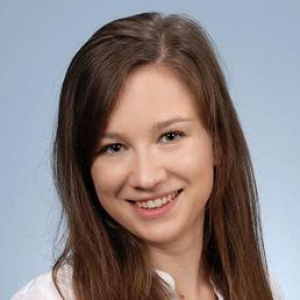
Bączek, Julia
First and last name
Julia Bączek
Academic degree or title
M.A.
Email
This email address is being protected from spambots. You need JavaScript enabled to view it.
Role in the Institute
{"funkcja-w-instytucie0":{"Funkcja":"","\u0141\u0105cznik":"","Nazwa w mianowniku":"Institute of Psychology"}}
Role in the Research Center
{"funkcja-w-centrum0":{"Funkcja":"","\u0141\u0105cznik":"","Nazwa w mianowniku":"Laboratory of Affective Neuroscience"}}
Institute
Laboratory of Affective Neuroscience
Specialization
psychologist
Role in the Department
[]
M.A. Julia Bączekpsychologist
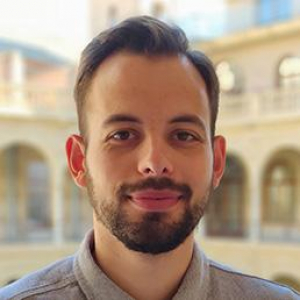
Dybowski, Karol
First and last name
Karol Dybowski
Specialization
psychologist
Academic degree or title
M.A.
Role in the Department
[]
Role in the Research Center
[]
M.A. Karol Dybowskipsychologist
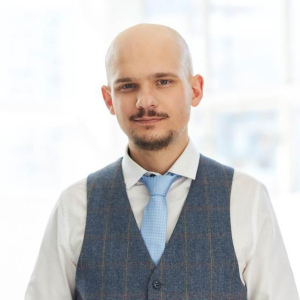
Karkosz, Stanisław
Specialization
cognitive scientist
First and last name
Stanisław Karkosz
Academic degree or title
M.A. / Teaching Assistant
Role in the Institute
{"funkcja-w-instytucie0":{"Funkcja":"","\u0141\u0105cznik":"","Nazwa w mianowniku":"Institute of Psychology"}}
Role in the Research Center
{"funkcja-w-centrum0":{"Funkcja":"","\u0141\u0105cznik":"","Nazwa w mianowniku":"Laboratory of Affective Neuroscience"}}
Email
This email address is being protected from spambots. You need JavaScript enabled to view it.
Role in the Faculty
{"funkcja-na-wydziale0":{"Funkcja":"","\u0141\u0105cznik":"","Nazwa w mianowniku":"Faculty of Psychology and Law in Pozna\u0144"}}
Role in the Department
{"funkcja-w-katedrze0":{"Funkcja":"","\u0141\u0105cznik":"","Nazwa w mianowniku":"Department of Methodology and Psychological Assessment"}}
M.A. / Teaching Assistant Stanisław Karkoszcognitive scientist
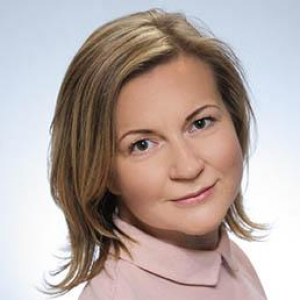
Niklas, Anna
Specialization
kierownik zespołu klinicznego, psychoterapeutka poznawczo-behawioralna
First and last name
Anna Niklas
Academic degree or title
Ph.D.
Email
This email address is being protected from spambots. You need JavaScript enabled to view it.
Role in the Department
[]
Role in the Research Center
[]
Ph.D. Anna Niklaskierownik zespołu klinicznego, psychoterapeutka poznawczo-behawioralna
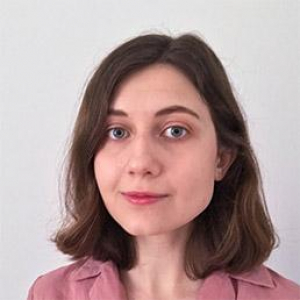
Pietruch, Magdalena
Specialization
Kognitywistka
First and last name
Magdalena Pietruch
Academic degree or title
M.A.
Role in the Institute
{"funkcja-w-instytucie0":{"Funkcja":"","\u0141\u0105cznik":"","Nazwa w mianowniku":"Neurocognitive Research Center (NCRC)"}}
Email
This email address is being protected from spambots. You need JavaScript enabled to view it.
Institute
Neurocognitive Research Center (NCRC)
Role in the Department
[]
Role in the Research Center
[]
M.A. Magdalena Pietruch

Stodolna, Paulina
First and last name
Paulina Stodolna
M.A. Paulina Stodolnastudent of Psychology at SWPS University